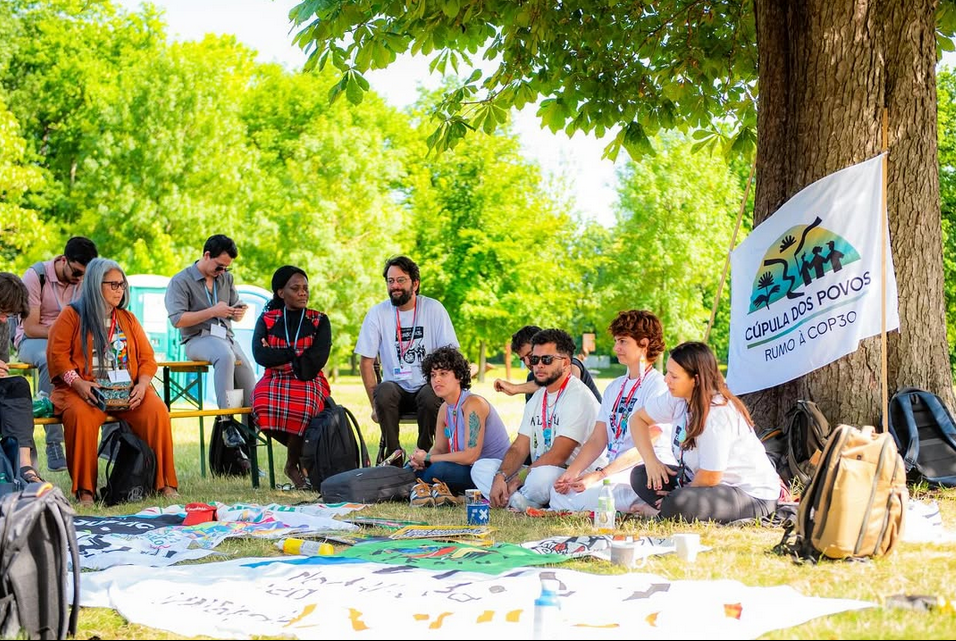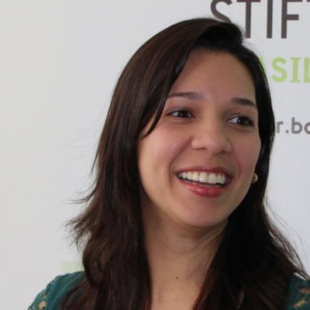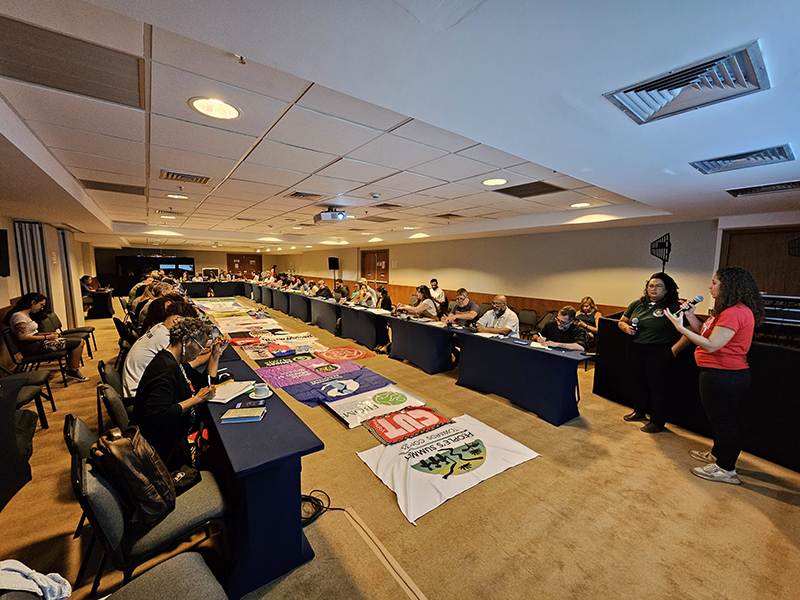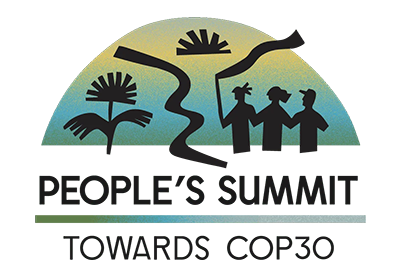
Photo: People’s Summit in Bonn. 📸@david_adelmann

Maureen Santos
Maureen is a professor and serves as the coordinator of the Environmental Platform research program at the BRICS Policy Center in Brazil.
She is the facilitator of the international Working Group and a member of the Political Committee for the People’s Summit Towards COP30, where she represents the National Advisory Group of the Federation of Organizations for Social and Educational Assistance (FASE), a Brazilian NGO.
By Maureen Santos
FASE and BRICS Policy Centre, Brazil
Adapted from a press conference held in Bonn in June 2025
Our planet is crying out for deep and urgent change.
Over the past two years, movements been building this collective process, which has resulted in six consensus-based convergence axes that unite the main demands of the organizations involved in the People’s Summit.
The People’s Summit Towards COP30 is a process of convergence between organizations and movements of women, trade unions, indigenous people, family farmers and peasants, quilombolas, traditional peoples and communities, traditional peoples of African origin, black people, youth, inter-religious groups, environmentalists, workers, media freedom activists, cultural groups, students, people from favelas and peripheries, LGBTQI+, people with disabilities, human rights, the defense of children, adolescents and intergenerational communities, cities, the countryside, forests and water, towards the realization of the People’s Summit as an autonomous space to COP30.
The space has been organized since August 2023 and includes social and grassroots movements, coalitions, collectives, networks, and civil society organizations from Brazil. The goal is to strengthen grassroots development and converge the unified agendas of socio-environmental, anti-patriarchal, anti-capitalist, anti-colonialist, anti-racist, and rights-based groups, respecting their diversity and specificities, united by a future of well-being.
With a broad and diverse global scope, these axes shape our shared political agenda and structure the four days of activities at the Summit. They also guide the message we aim to bring to the Global Day of Action.
At the end of this process, we will present the People’s Treaty — our common political declaration.

Photo: Planning meeting in Rio, held in 2025. Credit: Cúpula dos Povos, via FASE.
The six political axes of the Summit are:
- Historical reparations, combating environmental racism, corporate power and false solutions;
- Just, popular and inclusive transition;
- Resistance to oppression, defense of democracy and people’s internationalism;
- Just cities and vibrant urban peripheries;
- Popular feminism and women’s resistance in the territories;
- Rights of nature and intergenerational justice.
Each axis includes a wide range of subtopics, which can be found on our website.
The aim is to bring these agendas together under a shared purpose and common voice.
Find our call below, and follow and join our work up until Belém in November here:

